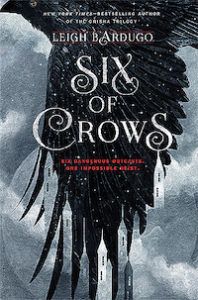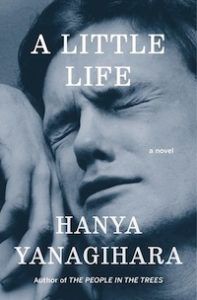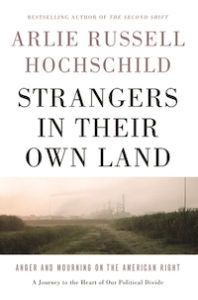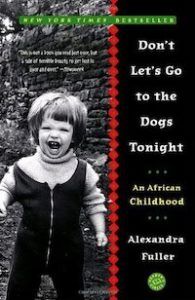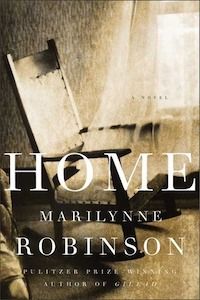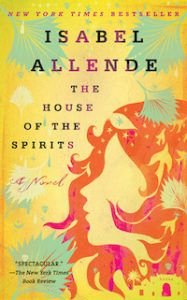But as I add books to my TBR, the books I added six months ago are slowly buried. Eventually some of these books enter into I’ve-been-meaning-to-read-that purgatory from which there may be no escape. So I have declared 2020 to be the year of the backlist. I am challenging myself to read at least one book from my backlist (published 2016 or earlier) each month for a total of 12 backlist books this year. And just to make myself really stick to it, I’m listing my choices publicly.
Books From My Backlist
Lit: A Memoir by Mary Karr (2009)
This is sort of a cheat because I already read this in January. But also not because I can’t very well go back in time and read something different. Karr writes about her struggle with alcoholism, becoming a mother and reckoning with her own mother, and her reluctant stumble into faith. Since I’ve already finished this one, I am 1/12 of the way through my challenge! Huzzah!
The Round House by Louise Erdrich (2012)
Despite her prolificness, I somehow have not read any of Erdrich’s books. I’ve decided to start with The Round House because it won the National Book Award. It’s a coming of age story about a young Ojibwe boy who fights for justice for his mother whose rape is being ignored by the authorities.
Six of Crows by Leigh Bardugo (2015)
I read Leigh Bardugo’s Grisha trilogy years ago and absolutely loved the Russian-esque world and the magic system. Six of Crows is the first book of a duology that takes place in the same universe. The story centers on the criminal Kaz and his crew of thieves as they attempt the world’s greatest heist.
Americanah by Chimamanda Ngozi Adichie (2013)
I’m pretty sure I’ve recommended this book to other people and I haven’t actually read it myself. Which is embarrassing. Americanah is the story of a young Nigerian couple who are separated when Ifemelu emigrates to America and Obinze ends up as an undocumented immigrant in London. They are reunited in Nigeria 15 years later, but have they grown too far apart to ever truly reconnect?
Cloud Atlas by David Mitchell (2004)
Experimental in style, Cloud Atlas tells six different stories happening across space and time and utilizing tropes of different genres. In the first half of the book, the stories move forward in time chronologically with each chapter telling a different seemingly unconnected story. Then the chronology reverses and the second half of the book returns to each story, but in reverse order, drawing parallels between characters and themes as it goes. I saw the film adaptation of Cloud Atlas when it came out back in 2012 and thought it was riveting.
A Prayer for Owen Meany by John Irving (1989)
This is as close to a modern classic as they come, but I completely missed the boat on it. Owen Meany is the 11-year-old protagonist who believes that everything happens for a reason and that he is a part of God’s divine plan. When he hits a foul ball that accidentally kills his best friend’s mother, he must find a way to reconcile his faith with his experience.
The Brothers K by David James Duncan (1992)
This domestic drama received high praise when it was first published for its ability to weave together family dynamics, politics, religion and even baseball into a funny and compelling narrative.
A Little Life by Hanya Yanagihara (2015)
Everyone I know who has read A Little Life has warned me that it is brutal. Don’t get me wrong, I like emotionally devastating books. But sometimes it’s hard to psych yourself up for 720 pages you know will lowkey destroy you. And yet…I love that experience of walking away from a book feeling like you’re in a daze because of how intensely you connected with it. The narrative follows four male friends in the decades after college.
Strangers in Their Own Land: Anger and Mourning on the American Right by Arlie Russell Hochschild (2016)
Sociologist Arlie Russell Hochschild spends time in the Louisiana bayou getting to know some of the people and communities that make up the conservative right. She seeks to answer the question why and how the people who would seem to benefit most from more liberal policies are so staunchly opposed to them. This hits close to home for me as I grew up in the conservative bayou country of Louisiana and have long asked the same questions.
Don’t Let’s Go To The Dogs Tonight by Alexandra Fuller (2003)
I love reading about personal stories, exotic places, and unconventional childhood experiences. Alexandra Fuller should be my perfect match. Raised in Africa by eccentric parents with colonialist attitudes, Fuller’s childhood was full of danger and near disaster in a land where she did not belong. Readers praise Fuller’s memoirs for being straightforward and unflinching even when revealing unflattering truths.
Home by Marilynne Robinson (2008)
I’ve been intending to read Home ever since reading Gilead in a college literature class. Home focuses on the household of Reverend Robert Boughton, the best friend of John Ames, who is the protagonist of Gilead. Boughton’s daughter, Glory, has returned home to care for her aging father. Her brother Jack, the black sheep of the family, comes home too trying to make peace with the world and find his place in it. Many people call this Robinson’s masterpiece.
The House of the Spirits by Isabel Allende (2005)
Allende is one of the best known and well-loved Latin American writers of our time. The House of the Spirits is possibly her most famous work. It is a multi-generational family saga following the Trueba family through decades of personal struggles and turbulent history with a little bit of magic thrown in. I’m hopeful that this year I can develop the habit of intentionally delving into my backlist instead of always chasing the newest, shiniest thing. And there is one great perk to reading from your back list: no waitlist at the library!


